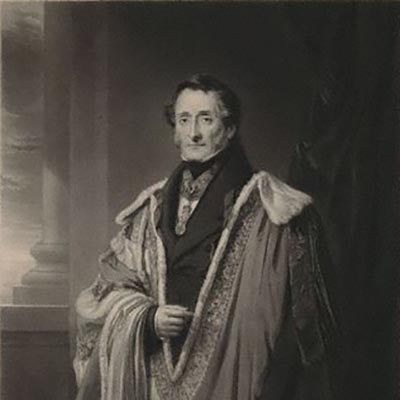
Thomas Hamilton, Lord Haddington
Share
This text was inspired by a list of selected customers from the Old Snuff House of Fribourgh and Treyer, at the Rasp and Crown, No. 34 St-James Haymarket, London, S.W (1720-1920).
Thomas Hamilton, 9th Earl of Haddington (1780-1858) was a Scottish aristocrat and politician who served as the Lord Lieutenant of Ireland from 1828 to 1830. He was also a prominent patron of the arts and sciences, and a keen collector of books and manuscripts.
Hamilton was born in Edinburgh, Scotland, in 1780, the son of Charles Hamilton, 8th Earl of Haddington, and his wife Sophia Hope. He was educated at Eton College and Christ Church, Oxford, before embarking on a career in politics.
Hamilton was first elected to the British Parliament as a Member of Parliament for the county of Haddington in 1802. He later served as a Tory MP for various constituencies, including Midlothian and Edinburgh, before being appointed as the Lord Lieutenant of Ireland in 1828.
As Lord Lieutenant, Hamilton was responsible for the administration of Ireland and worked to improve its economic and social conditions. He was also a supporter of Catholic Emancipation, which granted political rights to Catholics, and played a key role in its passage through Parliament.
During his time as Lord Lieutenant, Hamilton did work to improve the economic and social conditions of Ireland. He supported measures to improve agriculture and industry, including the construction of roads and canals, and he encouraged the development of education and the arts. He also played a role in easing tensions between Catholics and Protestants in Ireland, although his efforts in this area were limited.
It's worth noting, however, that Hamilton's tenure as Lord Lieutenant was during a time of great unrest in Ireland, with ongoing conflicts between Catholics and Protestants and a growing movement for Irish independence. While Hamilton did make some efforts to address these issues, his effectiveness was limited by the broader political and social conditions of the time.
Outside of politics, Hamilton was a dedicated collector of books and manuscripts, amassing a large library of over 10,000 volumes. He was also a patron of the arts and sciences, supporting the work of numerous artists, musicians, and scientists.
Some of the individuals and organizations that Hamilton supported include:
- The Royal Society of Edinburgh: Hamilton was a member of this prestigious scientific organization, and he provided financial support for its activities.
- The Royal Scottish Academy: Hamilton was a patron of this organization, which was founded in 1826 to promote the arts in Scotland. He provided funding for its exhibitions and supported many of its artists, including Sir Henry Raeburn.
- The Edinburgh Musical Society: Hamilton was a patron of this organization, which was founded in 1728 to promote music in Edinburgh. He supported its concerts and provided funding for the commissioning of new works.
- The Scottish Literary Society: Hamilton was a patron of this organization, which was founded in 1802 to promote Scottish literature. He provided funding for its publications and supported the work of many Scottish writers, including Sir Walter Scott.
- The Wernerian Natural History Society: Hamilton was a patron of this organization, which was founded in 1808 to promote the study of natural history in Scotland. He provided funding for its publications and supported the work of many Scottish scientists, including Robert Jameson.
Hamilton's patronage of the arts and sciences was part of a broader cultural movement in Scotland at the time, which aimed to promote Scottish identity and excellence in the arts and sciences. Hamilton's support for these organizations and individuals helped to create a vibrant cultural scene in Scotland that had a lasting impact on the country's history and identity.
Hamilton died in 1858 at the age of 77, and was succeeded as the Earl of Haddington by his son, also named Thomas Hamilton. Today, Hamilton's legacy is remembered through his contributions to politics, culture, and scholarship in Scotland and Ireland.
